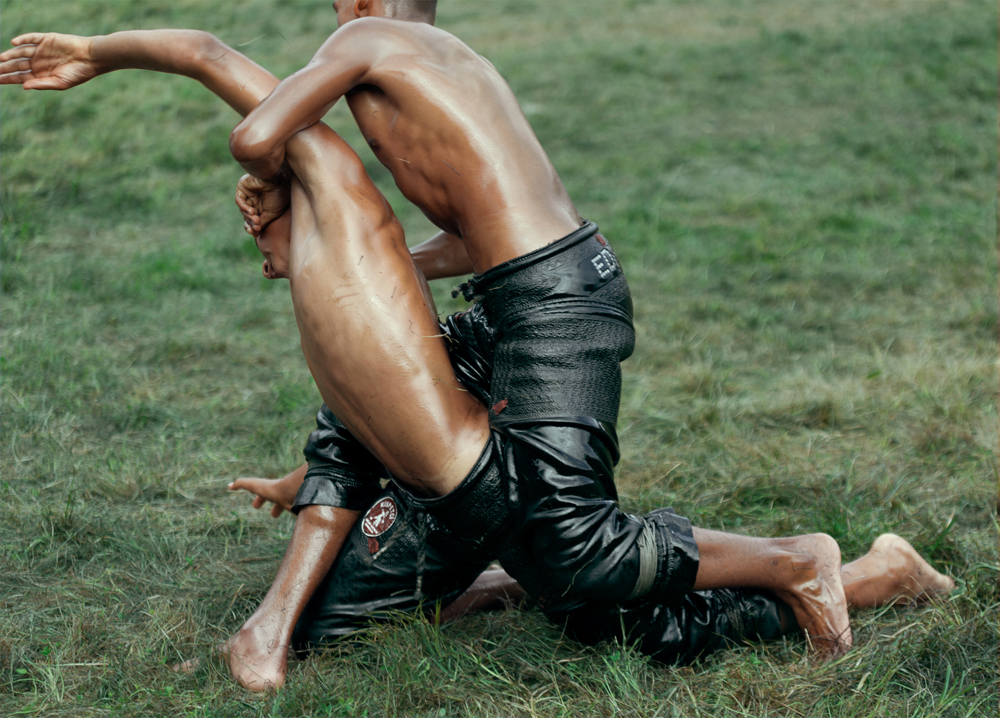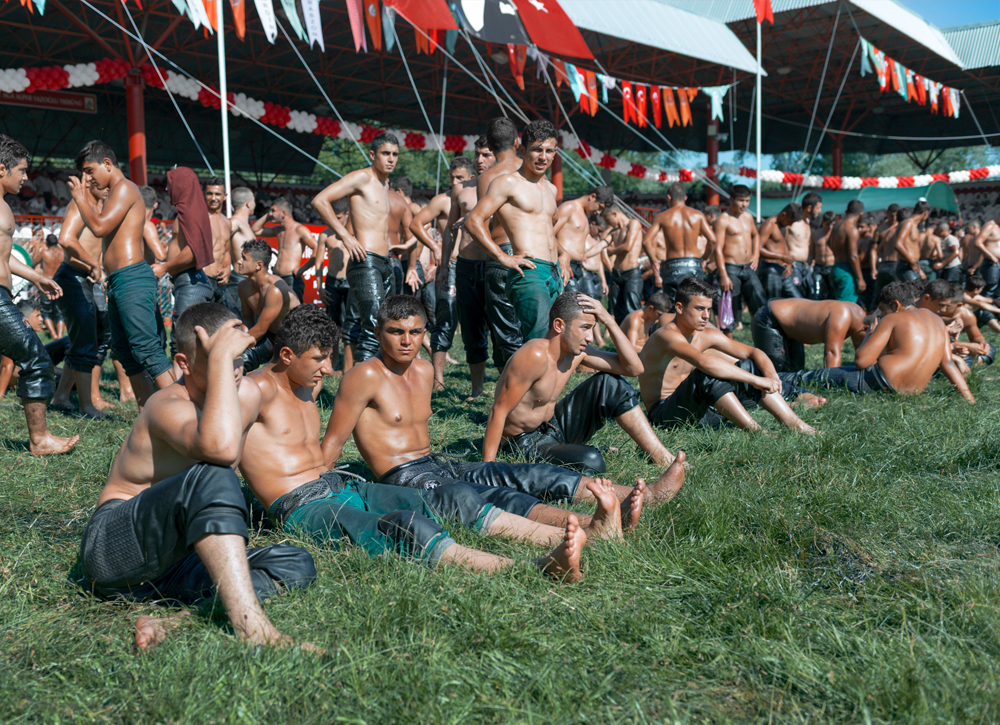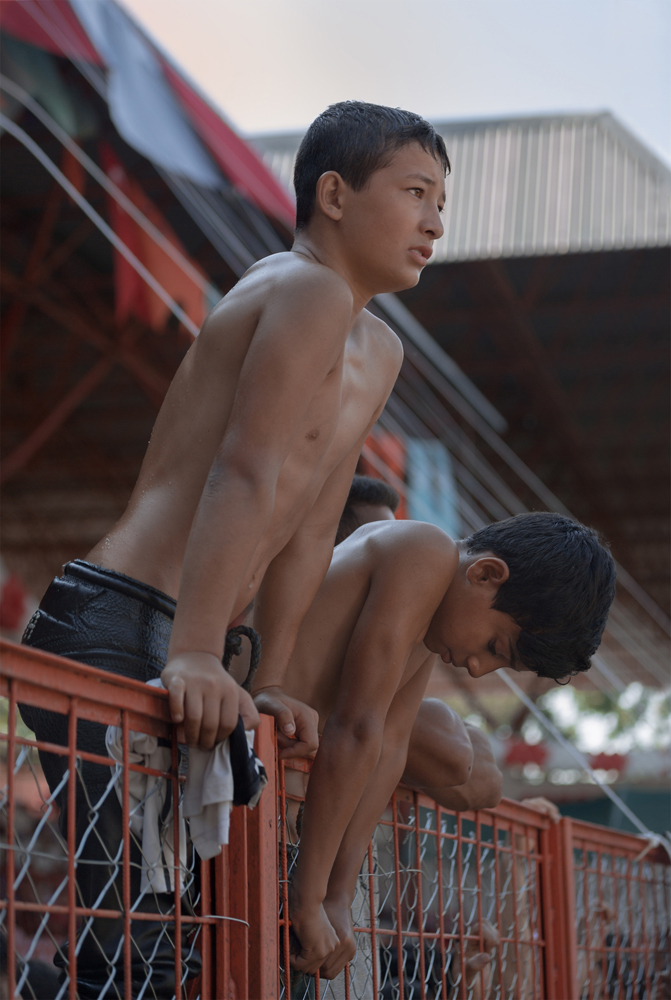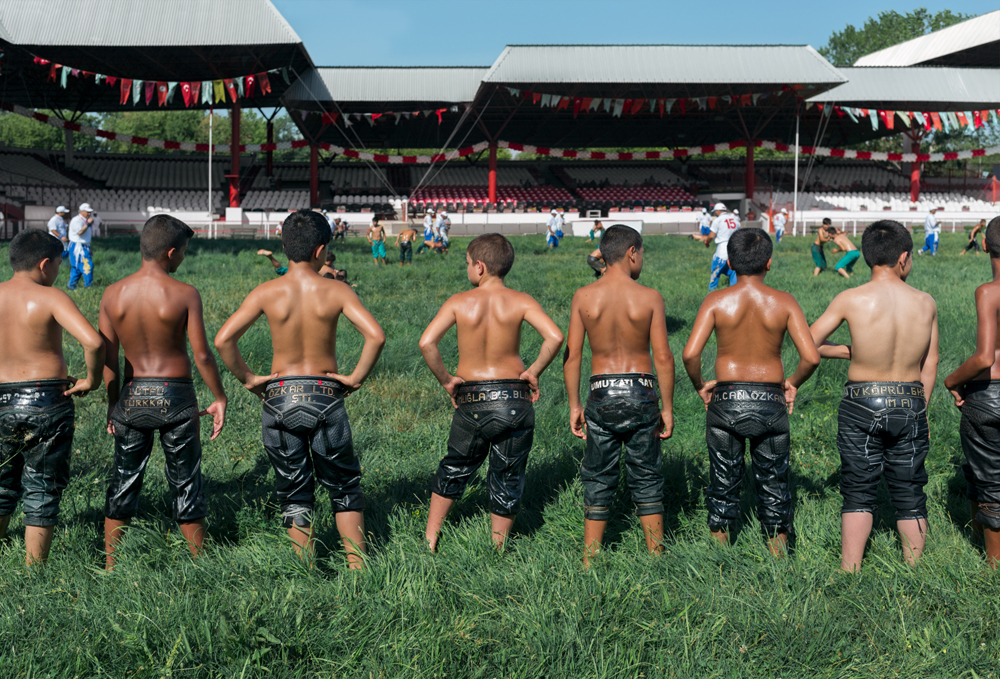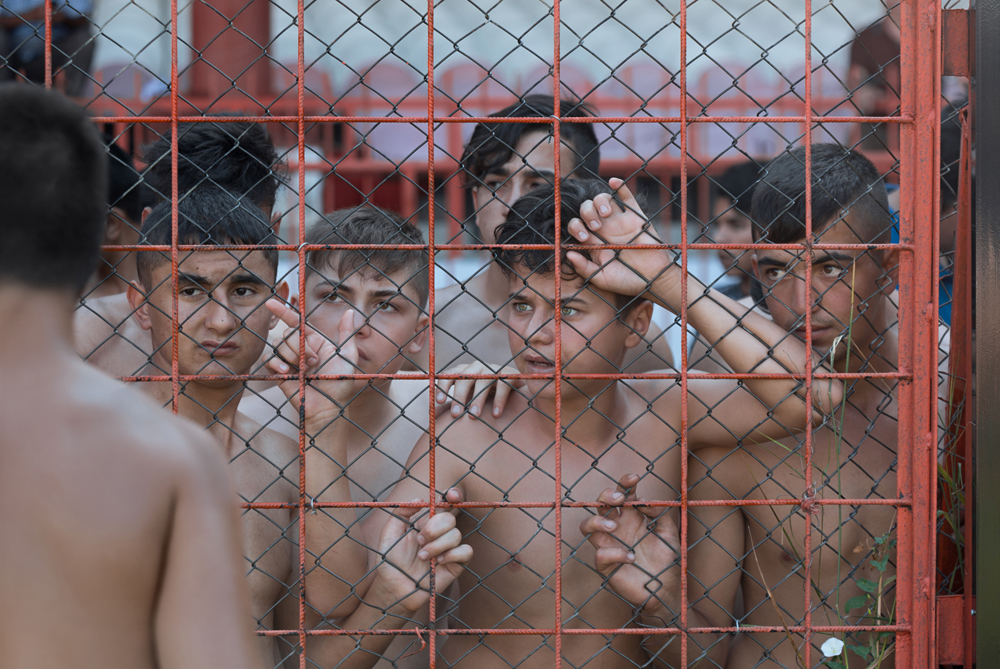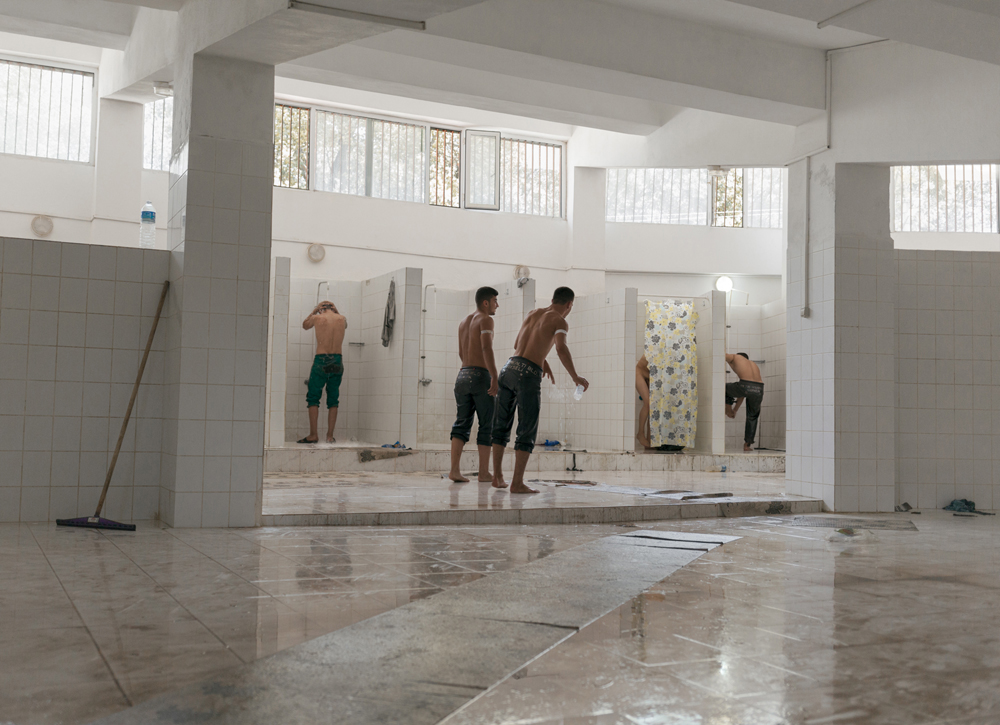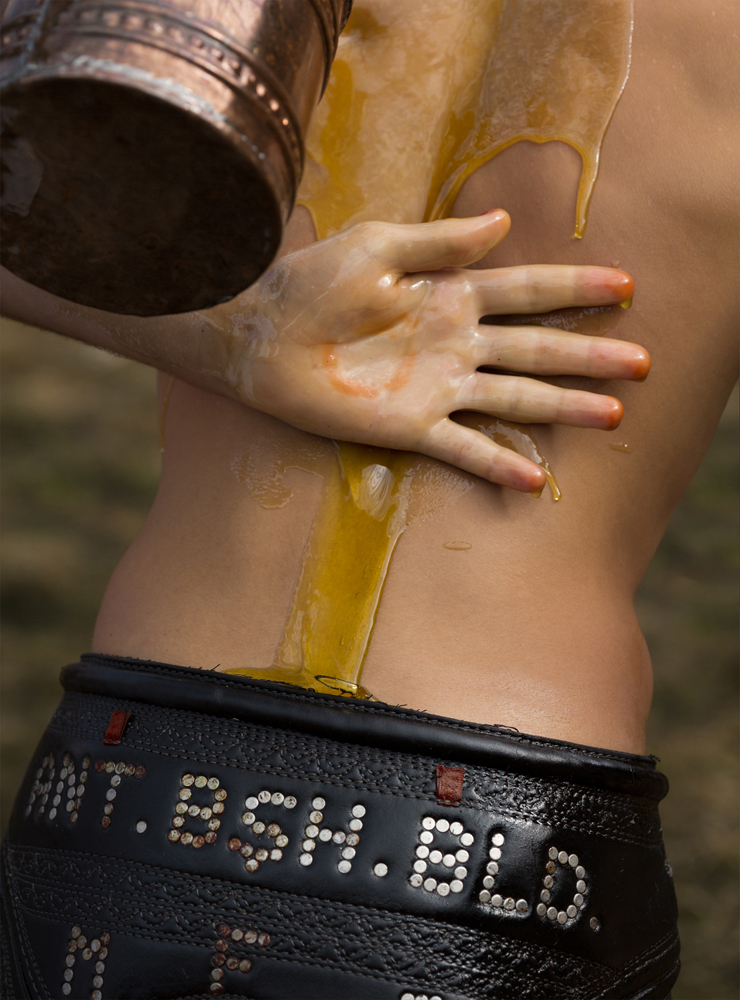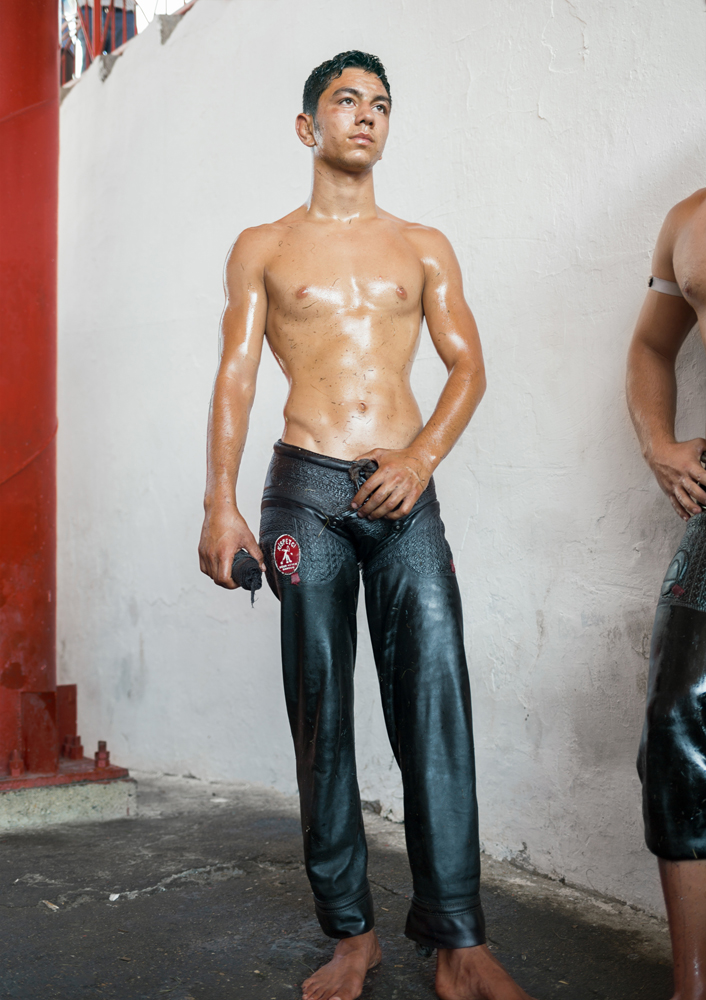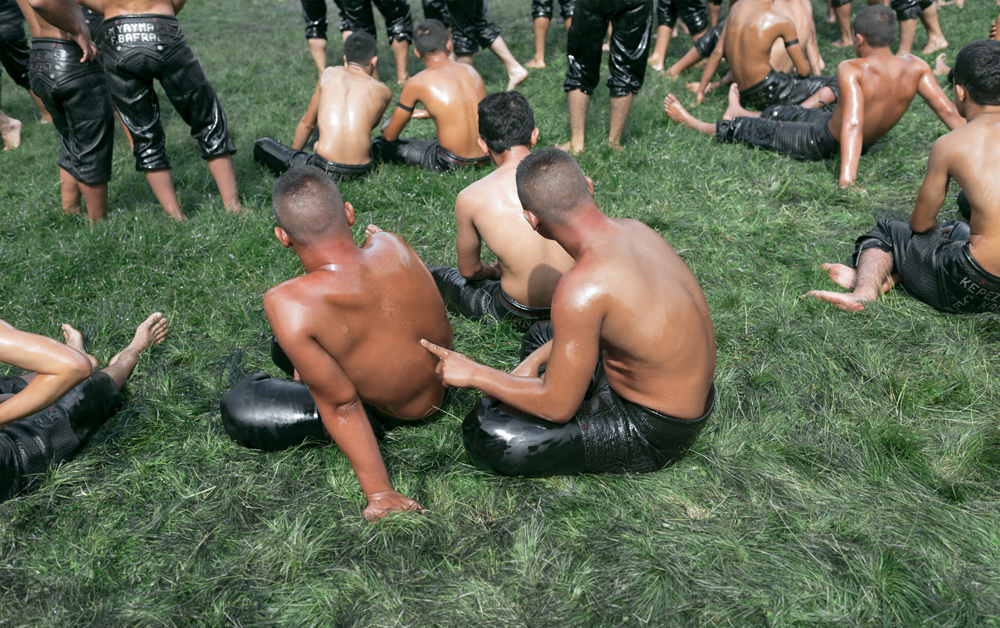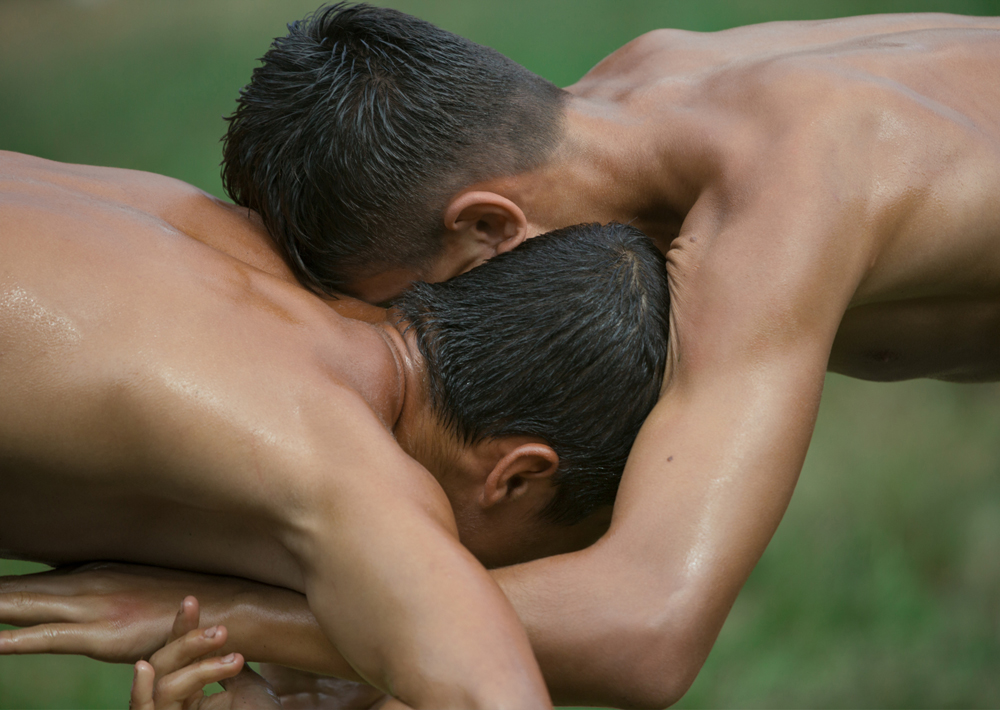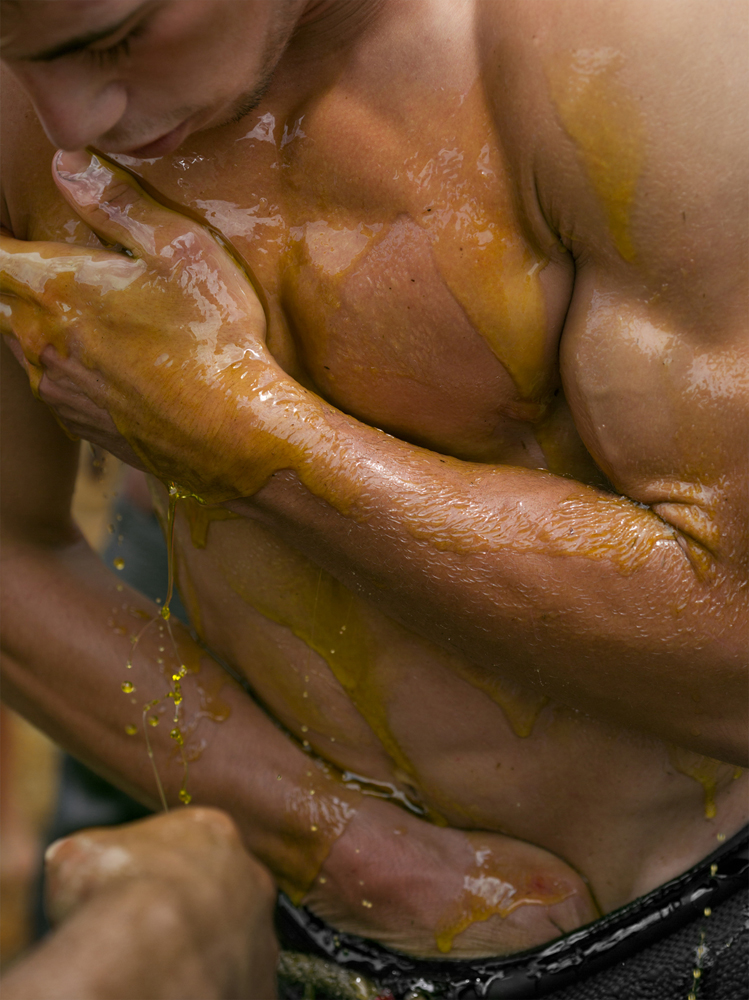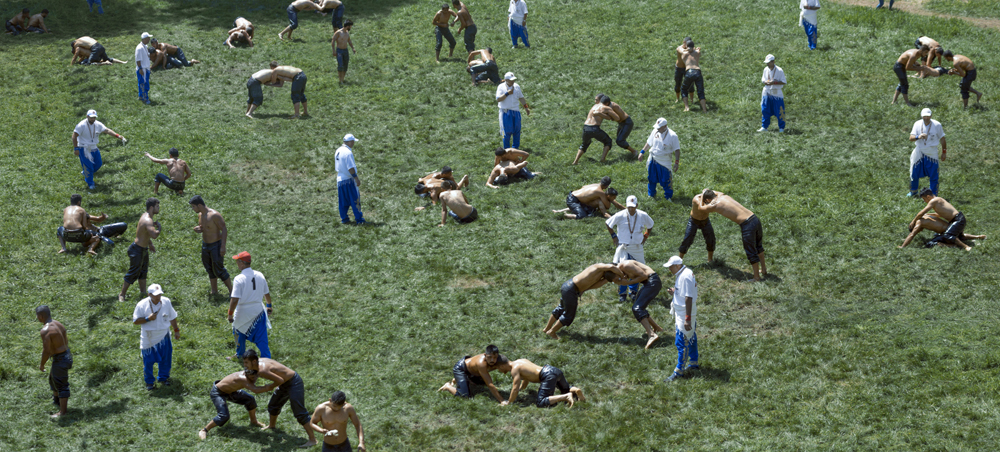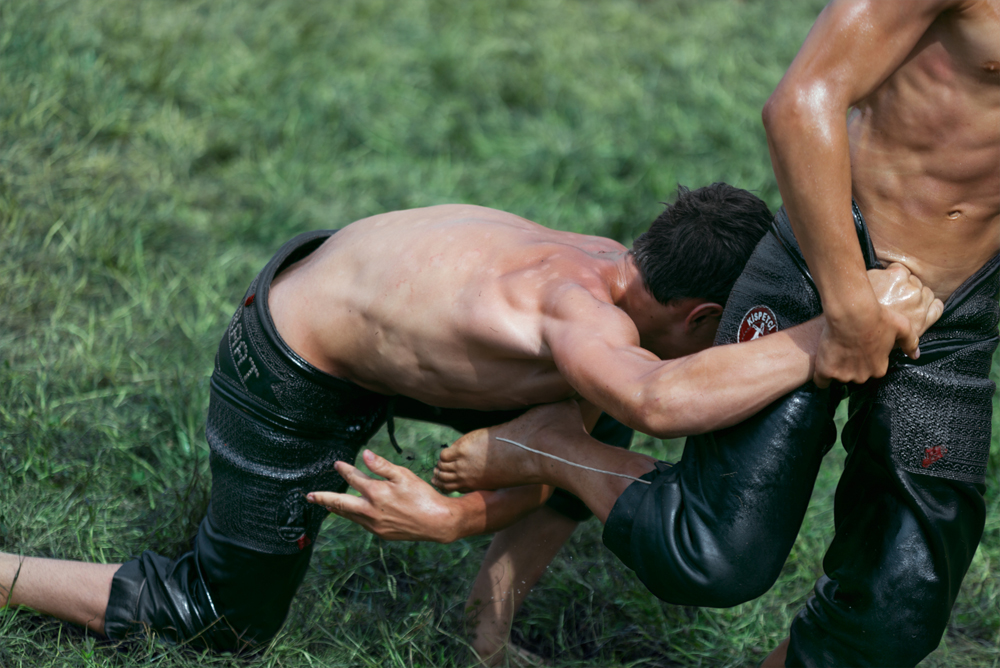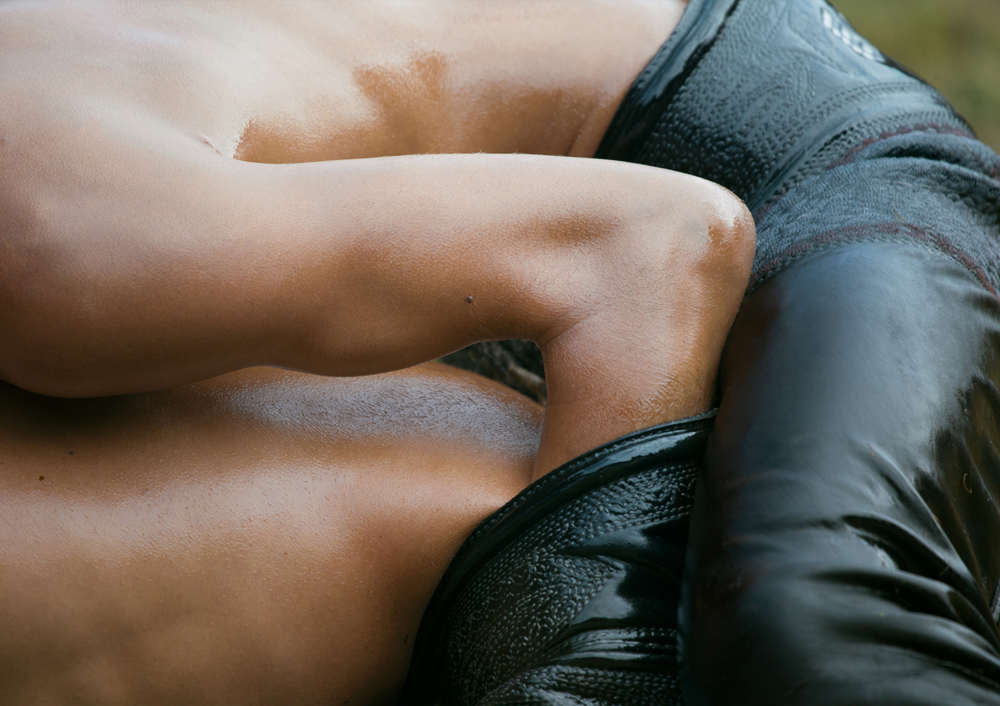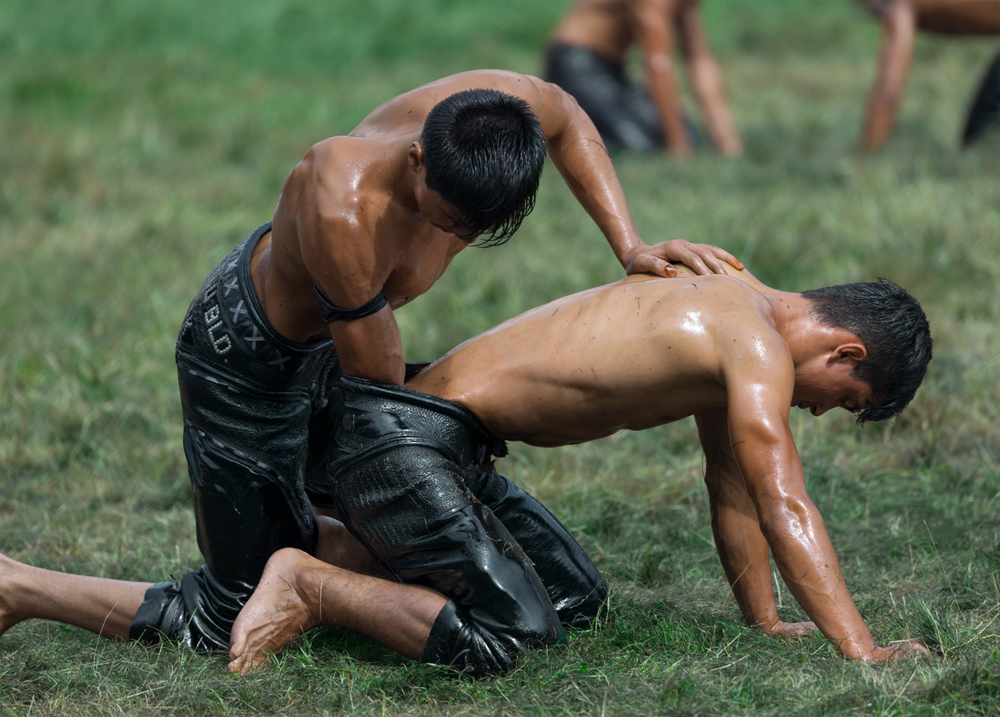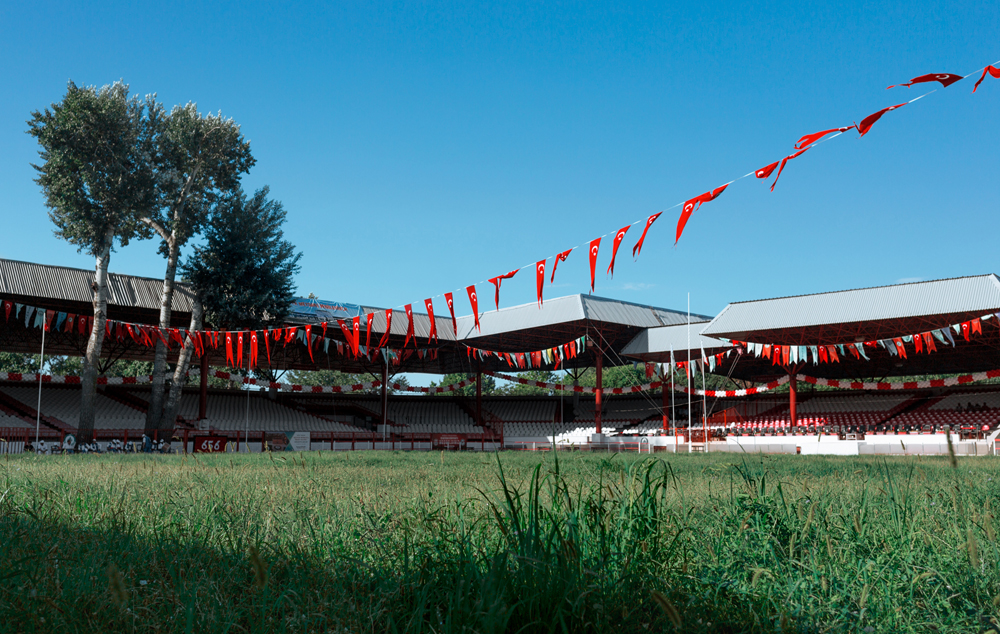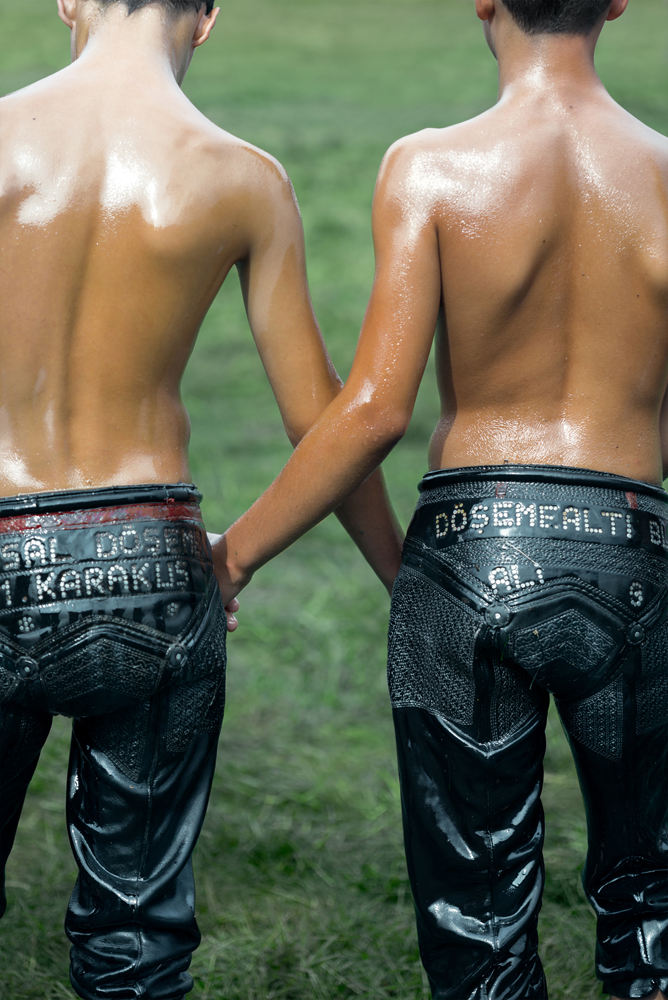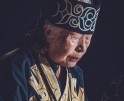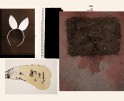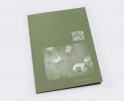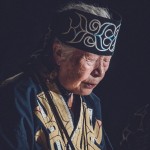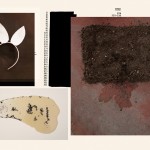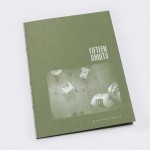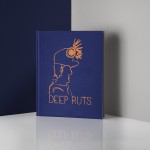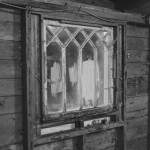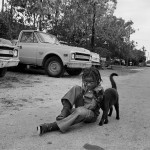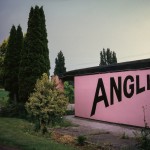Ben McNutt: Oil Wrestling
Turkish oil wrestling is so much of a spectacle that it would be shocking to find out if someone had never heard of it. Historically the oldest sporting event in the world, oil wrestlers are clearly athletes displaying heightened fitness, resilience, and strategic intelligence, making it a competition of the best among the best. Ben McNutt, a photographer that has concerned himself with the cultural image of wrestling, Greco-Roman sculpture, and queerness, traveled to Turkey to document oil wrestling as a poignant component to his research. Here Ben has made a slight departure in content, choosing to create dialogue between the perception of masculinity and the complexities that have bound its image.
The sport of wrestling holds culturally and socially significant subtexts, such as power, athleticism, and desire. McNutt’s in-depth, artistic exploration of this sport throughout history demonstrates a natural obsession with these subtexts. Perhaps McNutt’s artwork is a representation of all of our fantasies, obsessions, intrigues, and desires. His work stands as a part of a larger body that chronicles the human fascination with the athletic form. However, his use of photography extends this conversation by intentionally framing our perspective. In doing so, our impressions, responses, and desires become inseparable from the subjects in the photographs. McNutt allows us to share an intimate embrace with wrestling.
Oil Wrestling
I was confronted with contradiction when I penned an article for an online news site. Accompanied alongside my photographs I boldly wrote how I believed wrestling culture’s perspective on masculinity was incompatible with how it presented itself, appearing socially conservative but presenting itself so queerly to me. One photograph I created emphasized the skin-tight red spandex of a wrestling singlet against a wrestlers chest while another photograph showed a touching and quiet embrace between two wrestlers. The response to the article was overwhelmingly negative. I received death-threats among the various invocations of violence from self-identified wrestlers and other users. Agitated commentators denied its queerness and also spoke of my lack of authenticity, research, and relationship with wrestling culture as reasoning for their denial. What I was taught to feel about wrestling and what I was actually feeling were at odds with one another. Culturally I was supposed to view the sport and wrestlers as strong, traditional, masculine, powerful, normative figures but that isn’t what I saw or what I felt. Frustrated by the reaction to my article and filled with self-doubt I wanted to begin an in-depth, artistic exploration of wrestling culture and its relationship with masculinity to prove these wrestlers wrong.
Recognizing some of the more valid aspects of the comments made I continued to learn about and photograph wrestling. Where my interests led me was a matter of the heart and never felt forced for myself. I became a regular attendee at the Naval Academy’s wrestling competitions in Annapolis, Maryland where I watched and learned the sport alongside wrestlers. I talked with world freestyle wrestling gold medalist Mehran Mirzaiee, مهرانمیرزای ی, about wrestling’s popularity in Iran in comparison to the United States. I archived thousands of wrestling photographs from institutions such as the National Archives and Records Administration and from personal instagram accounts such as turkish pehlivan Sefa Yeşilkaya. When I read comments on my article years later I understand some of the viewpoints voiced. So often the wrestling imagery we consume such as photographs of turkish oil wrestling are simplified to being “gay” and sexualized while dismissing the cultural context and nuances the sport and imagery contains and I added to this assumption. After six years involved in this project I have come to believe however that wrestling provides a space for progressive aspects of masculinity to be practiced.
Wrestling culture is able to provide a context wherein its athletes are pulling, pushing, and ignoring aspects of traditional masculinity willing or unwitting. Because of wrestling’s incredible relationship with history, religion, athleticism, culture, nationalism, I find this belief to be an incredibly powerful one. Though my work on wrestling stands as a part of a larger body that chronicles the human fascination with the athletic form, my use of photography extends this conversation by intentionally framing our perspective. I will continue my series on wrestling with no end in site, not only because I’ve found myself as a wrestling fan, but because my beliefs compel me to do.
Posts on Lenscratch may not be reproduced without the permission of the Lenscratch staff and the photographer.
Recommended
-
Shinichiro Nagasawa: The Bonin IslandersApril 2nd, 2024
-
The International Women in Photo Association Awards: Lorraine Turci: The Resilience of the CrowMarch 16th, 2024
-
The International Women in Photo Association Awards: Rayito Flores Pelcastre: Chirping of CricketsMarch 14th, 2024
-
The International Women in Photo Association Awards: Louise Amelie: What Does Migration Mean for those who Stay BehindMarch 12th, 2024
-
Brandon Tauszik: Fifteen VaultsMarch 3rd, 2024

